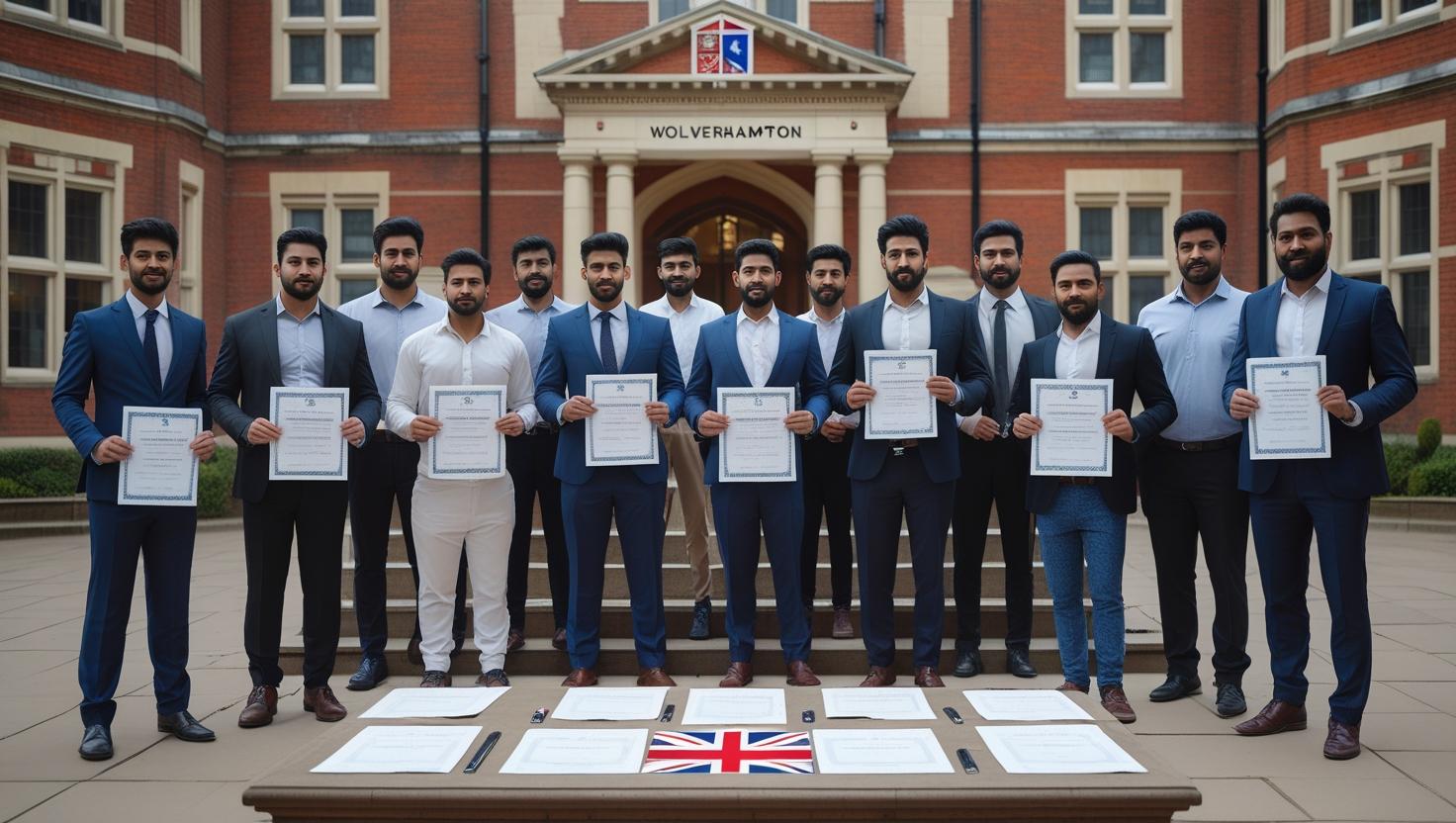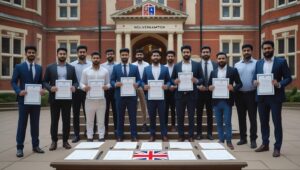Wolverhampton has a significant Urdu-speaking population, especially in areas such as Penn Fields, Whitmore Reans, Blakenhall, and central Wolverhampton. For many families and individuals who speak Urdu as their first language, certified translation becomes an essential requirement when interacting with UK authorities. Immigration applications, academic enrolment, court matters, housing paperwork, and healthcare documentation often require English versions of key documents. These translations must not only be accurate but must also follow specific certification rules set by UK government departments.
A certified translation is far more than a literal translation. It requires a formal statement confirming the accuracy of the translated document, the translator’s name, contact details, signature, and the date of the translation. Submitting a translation that does not meet these standards may lead to delays, rejections, or complications, especially for Home Office procedures. This is why choosing a professional, experienced translation provider is essential.
SEtranslations.uk specialises in Urdu to English certified translations that meet every official requirement. With years of experience and a strong understanding of documentation used in immigration, legal, academic, and personal processes, we provide Wolverhampton translation services they can trust.
Disclaimer: We do not give any legal advice to any client. We only do Translation we do not give any authenticity and security and clarity of the documentation, as a disclaimer., we only do the Translation, it is the responsibility of the applicant to make sure they maintain authenticity of the document, if the documents are not authentic, the translation will be void
In this comprehensive guide, we’ll explore everything you need to know about certified translation services, why they matter, who needs them, the process involved, and how to choose the right provider in Wolverhampton.
Understanding Certified Translation
Before diving deeper, it’s essential to understand what certified translation really means. A certified translation is not just about converting words from Urdu to English. It’s a legally recognized translation that comes with a signed declaration from the translator or translation agency, confirming that the translation is accurate and complete to the best of their knowledge.
This declaration ensures that the translated document is accepted by UK authorities, courts, universities, and businesses. Certified translations differ from standard translations because they carry official recognition. For example, if you’re applying for a UK visa, you cannot simply submit a regular translation done by a bilingual friend—it must be certified to be valid.
There are also different types of certified translations:
- Standard Certified Translation – Signed and stamped by a professional translator.
- Notarized Translation – Certified by a notary public, often required for legal cases.
- Apostille Translation – Used for international legal recognition.
Understanding these distinctions is critical when choosing the right translation for your needs.
Why Choose SEtranslations.uk for Urdu to English Certified Translation in Wolverhampton?
Choosing a translation service is an important decision, especially when the documents you are translating can affect your legal status, educational opportunities, family life, or career. SEtranslations.uk stands out because we combine professional expertise with a deep understanding of the local community. Our translators are native Urdu speakers with advanced English proficiency, trained in the terminology and requirements of different sectors. We ensure that every translation is reviewed, checked for accuracy, and certified properly.
Clients in Wolverhampton rely on us because we offer a smooth, efficient process from the moment the document is submitted to the moment the certified translation is delivered. Whether the document is for UKVI, Wolverhampton University, a solicitor, a court, an employer, or a medical facility, our team ensures that the translation meets the exact requirement of the receiving authority. We understand which documents need signatures, official stamps, additional pages, explanatory notes, and correct formatting.
Wolverhampton residents also appreciate the convenience we offer. You can submit documents digitally, request same-day urgent translation, and receive your certified translation by email as well as in printed form if required. With transparent pricing and a professional approach, SEtranslations.uk provides one of the most reliable, cost-effective translation services in the area.
The Tanveer Principle in UK
The Tanveer Principle in the UK plays a vital role in ensuring fairness within asylum and immigration cases. It guides decision-makers to rely on credible, verifiable evidence rather than assumptions or personal impressions.
This principle protects applicants by ensuring that caseworkers assess documents carefully, especially when authenticity is questioned. It prevents unfair refusals based on speculation.
In the UK immigration system, the Tanveer Principle strengthens transparency and accuracy. It ensures that every applicant is judged on the basis of proper evidence, promoting justice and consistency throughout the asylum and immigration process.
Urdu to English Certified Asylum Translation Wolverhampton – setranslations.uk
At setranslations.uk, we provide fast, accurate, and certified Urdu to English asylum translation services for clients in Wolverhampton. Our professional translators deliver clear, reliable translations that meet UK Home Office and legal submission standards. Each document is handled with strict confidentiality and attention to detail to support your asylum application process. We ensure timely delivery, competitive pricing, and professional quality for all asylum-related documents.
Disclaimer: We do not give any legal advice to any client. We only provide translation. We do not give any authenticity, security, or clarity of the documentation; it is the applicant’s responsibility to maintain document authenticity.
Who Needs Certified Urdu to English Translation?
Certified translations are not only for immigrants or students; they are widely required across multiple sectors in Wolverhampton. Let’s break it down:
Students and Academic Institutions
Students applying to universities in Wolverhampton or elsewhere in the UK often have transcripts, diplomas, and recommendation letters in Urdu. Certified translations ensure these documents are officially recognized, preventing delays in admissions.
Businesses and Professionals
Companies in Wolverhampton that deal with international trade or have Urdu-speaking clients often require translation of contracts, financial statements, and licenses. Professionals, such as doctors and lawyers, may also need their qualifications translated when registering with UK authorities.
Legal and Immigration Purposes
Legal and immigration processes demand absolute accuracy. For visa applications, citizenship, or court proceedings, a certified Urdu to English translation ensures that no misinterpretation occurs. Immigration officers are particularly strict about document accuracy, so certified translation is a must.
In short, certified Urdu to English translation is a gateway to opportunities for individuals, students, businesses, and families in Wolverhampton. Without it, essential processes could face unnecessary delays or rejections.
Key Documents That Require Urdu to English Certified Translation
Not all documents require certified translation, but certain official papers must be translated and certified to be accepted by UK authorities. The most common include:
- Birth, Marriage, and Death Certificates – For immigration, family reunification, or inheritance matters.
- Academic Transcripts and Diplomas – Needed by schools, universities, and professional licensing bodies.
- Business Documents and Contracts – Essential for trade, partnerships, and compliance.
- Immigration and Visa Paperwork – A must for applications to the UK Home Office.
Imagine applying for British citizenship without having your Urdu birth certificate translated. It would be instantly rejected, causing delays and possibly even legal issues. This is why certified translations hold such weight in official processes.
Types of Urdu to English Certified Translation Services We Provide
We provide a wide range of certified translation services for individuals, families, students, professionals, and organisations in Wolverhampton. Our most frequently requested services include:
-
Immigration & Visa Documentation
Home Office, visa centre, spouse visa, settlement applications, citizenship documents, police certificates, residence proofs, and sponsor letters. -
Personal & Civil Documents
Birth certificates, marriage certificates, death certificates, divorce papers, family booklets, and national ID cards. -
Education & Academic Documents
School certificates, transcripts, college degrees, university diplomas, mark sheets, recommendation letters, and training certificates. -
Legal & Court Documents
Affidavits, witness statements, contracts, tenancy agreements, litigation documents, power of attorney, and criminal record checks. -
Business & Corporate Documents
Company registration papers, financial statements, tax documents, employment agreements, letters of intent, and commercial contracts. -
Medical & Healthcare Documents
Medical reports, vaccination records, prescriptions, diagnosis papers, and hospital discharge summaries.
Each of these translations includes appropriate certification so that they are accepted by the intended authority without delay or rejection.
How Our Urdu to English Certified Translation Process Works?
The translation process at SEtranslations.uk has been designed to provide simplicity, speed, and accuracy. We understand that many customers need their documents urgently, especially for visa appointments, university deadlines, or court dates. Therefore, our streamlined process ensures fast turnaround while maintaining top quality.
Once you submit your document, we evaluate its content, length, clarity, and format to provide you with a clear quote. After you approve the quote, one of our professional Urdu translators begins the translation. When the translation is complete, a second reviewer checks for accuracy, formatting, consistency, and completeness. We then prepare the final certified translation, which includes the official certification statement.
This is followed by digital delivery (via PDF), and if needed, a printed version is sent to your postal address or made ready for collection in Wolverhampton. Our customer support team is available throughout the process to provide updates or respond to queries.
Sample Certification Statement Used by SEtranslations.uk
A typical certification attached to our translations includes language such as:
“I hereby certify that I am competent to translate from Urdu to English and that the translation of this document is a true and accurate representation of the original.”
Below this statement, we include the translator’s name, signature, date, and contact details. This ensures your translation meets nationwide standards and is accepted by UKVI, legal firms, educational institutions, and other entities.
Pricing and Turnaround Times for Urdu to English Certified Translation
At SEtranslations.uk, we offer transparent prices designed to match the needs of Wolverhampton residents. We understand that affordability is important, but so is precision. Our rates are competitive and based on factors such as document type, length, complexity, and urgency.
Short documents such as certificates are usually offered at a fixed price. Longer or more complex documents—such as legal agreements or academic transcripts—may be priced per page or per word depending on complexity. Urgent orders, including same-day services, may involve an additional fee.
We offer:
-
Standard turnaround: around 48 hours
-
Express service: 24 hours
-
Same-day: subject to availability and document clarity
Customers can choose digital-only certified copies or request printed, signed, stamped copies delivered to Wolverhampton addresses.
Local Expertise: Urdu Translation Services for Wolverhampton Residents
Wolverhampton’s diverse population requires services that understand both linguistic and cultural nuances. Many residents come from Urdu-speaking backgrounds and maintain documentation from Pakistan, India, or other Urdu-speaking regions. These documents are often handwritten or issued in older formats, requiring careful translation to ensure accuracy and compliance.
SEtranslations.uk has extensive experience handling these documents. Whether it is a handwritten birth certificate from the 1980s, a manually issued degree certificate, or a family registration booklet, our translators understand the context and terminology. This expertise ensures that translations are not only linguistically precise but also culturally accurate, improving the acceptance rate for official submissions.
FAQs: Urdu to English Certified Translation Wolverhampton
Are Your Translations Accepted by the Home Office?
Yes. We follow all required certification rules so that your translations are accepted by UKVI and other government bodies.
How Do I Submit My Urdu Documents for Translation?
You can upload a clear photo or scan through our website, email, or WhatsApp. Originals are not required unless specifically requested.
Do You Offer Same-Day Translation in Wolverhampton?
Yes. Same-day service is available depending on document type and translator availability.
Can a Family Member Translate My Documents?
No. UK authorities typically reject translations prepared by family members because they may not be impartial.
Do You Translate Handwritten Urdu Documents?
Yes, although additional time may be required for clarity and accurate interpretation.
Will I Receive a Printed Certified Copy?
Yes. We can send a printed, signed, and stamped copy to your Wolverhampton address.
What If the Receiving Authority Requests Changes?
We will revise the translation free of charge to meet official requirements.
Final Thoughts
SEtranslations.uk is committed to providing Wolverhampton with accurate, reliable, and fully compliant Urdu to English certified translation services. Whether you are applying for immigration, enrolling at university, handling legal matters, or managing personal affairs, our experienced translators are here to ensure your documents meet UK standards every time.
With expert translators, adherence to official guidelines, fast turnaround options, and a strong understanding of local needs, we have become a trusted name in Wolverhampton’s translation landscape. You can rely on us for professionalism, confidentiality, accuracy, and exceptional customer support.
If you are ready to translate your documents, simply upload your file or contact our team. SEtranslations.uk is here to help you complete your translation smoothly and successfully.
- Bangla Asylum Translation Agency Great Britain – Professional, Accurate, and Trusted Services by setranslations.uk
- Bangla Asylum Translation Agency England – Professional, Accurate & Confidential Services by Setranslations.uk
- Best Asylum Arabic to English Translation Services London – setranslations.uk

Mr Muhammad Ahmad
Mr Muhammad Ahmad is a qualified and highly experienced linguist and legal professional based in London, United Kingdom. He is a full Member (MCIL) of the Chartered Institute of Linguists (CIOL) with CIOL Membership Number 92688. His native language is Bengali and English, and he is officially listed on the CIOL’s Find-a-Linguist directory for professional English to Bengali translation.











